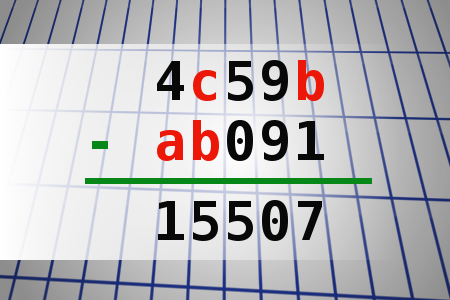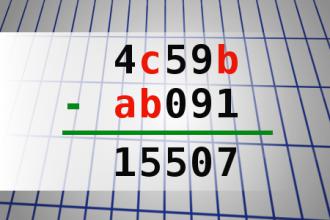Find number abc
If 4c59b - ab091 = 15507 find number abc. Multiple solutions may exist.Correct answers: 18
The first user who solved this task is Nasrin 24 T.
#brainteasers #math

Senior Citizen
Two businessmen in Florida were sitting down for a break in their soon-to-be new store. As yet, the store wasn't ready, with only a few shelves set up. One said to the other, ' I bet any minute now some senior citizen is going to walk by, put his face to the window, and ask what we're selling.'
No sooner were the words out of his mouth when, sure enough, a curious senior citizen walked to the window, had a peek, and in a soft voice asked
"What are you sellin' here?"
One of the men replied sarcastically, "We're selling assh*les."
Without skipping a beat, the old timer said, "You're doing well. Only two left."

